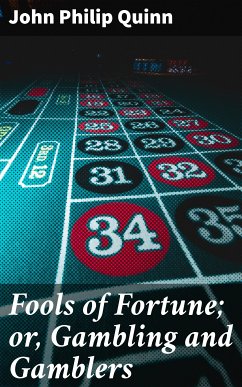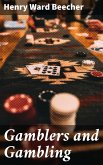In "Fools of Fortune; or, Gambling and Gamblers," John Philip Quinn delves into the complex psychology and societal implications of gambling during the early 20th century. Blending narrative essays with keen observations, Quinn utilizes a mix of anecdotal evidence and statistical analysis to explore the motivations behind gambling behavior and its consequences. The prose is both eloquent and accessible, reflecting the literary styles of his contemporaries while maintaining a unique voice that addresses the moral ambiguities and ethical dilemmas faced by gamblers and society alike. As Quinn engages with themes of chance, fortune, and human folly, he situates his work within the broader discourse on vice and societal norms of the time. John Philip Quinn, a noted sociologist and cultural commentator, was influenced by the tumultuous social changes of his era, including the rise of industrialization and urbanization. His academic background in social sciences provided him with a nuanced understanding of behavioral economics, shaping the analytical lens through which he examines gambling. Quinn'Äôs personal observations of gamblers in various contexts enriched his portrayal, crafting a comprehensive narrative about the allure and danger of gambling in modern life. "Fools of Fortune" is a thought-provoking exploration that challenges readers to reflect on their own relationship with risk and reward. I recommend this book to those interested in sociology, psychology, and the cultural history of gambling, as it offers penetrating insights into a universal human experience, making it a valuable addition to the library of anyone curious about the interplay between chance and choice.
Dieser Download kann aus rechtlichen Gründen nur mit Rechnungsadresse in A, B, BG, CY, CZ, D, DK, EW, E, FIN, F, GR, H, IRL, I, LT, L, LR, M, NL, PL, P, R, S, SLO, SK ausgeliefert werden.









